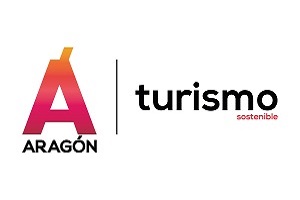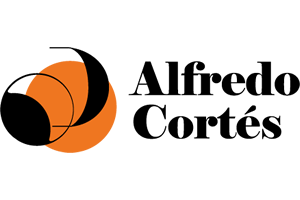You are in love with your city despite living in Madrid for many years.
Now I live in Madrid. I am from Zaragoza and I started studying there but then I went to Madrid to study Teleco and since then I live in Madrid. I keep the city of Zaragoza in my list of priorities and everything I see interesting I communicate it to the City Council and I advise them where to go. I don’t charge for it but it’s a way of helping my city, giving them advice on how the rest of the cities in Europe are moving, where the European funding opportunities are and what are the lines of innovation that they can take advantage of, which are many because the city has very good conditions.
Can you tell us some of these tips?
The city of Zaragoza, in my opinion, is the best positioned at the European level to achieve the objectives of sustainability, to be carbon neutral, because in the municipal land is generated six times the energy consumed by the city. Moreover, it is renewable energy, almost all of it produced by windmills. This means that the city can easily incorporate new technologies, and there are already projects such as the hydropower plant and many others. It has a very large municipal area, with almost 100 square kilometers. The left bank is a very natural area, with meandering rivers that make it an ideal area for planting trees, which you need to offset carbon emissions. The right bank is arid hills where you can put solar panels and windmills, even more. That area can be dedicated to energy production.
The city council is already generating biogas, recycling and using biomass. Very soon Zaragoza could become an energy supplier for its citizens. The first objective is to produce energy for municipal services. For example, they have already bought electric buses, which is fantastic news to reduce their carbon footprint, which will run on energy produced by the city itself. This is very good and very sustainable.
It has managed to be on the list of eight cities nominated by Spain to achieve these goals. In addition, with the Green Deal, there will be a million million to make Europe carbon neutral by 2050. There is already an advance party of 100 cities across Europe where there is supposed to be additional funding to make them carbon neutral by 2030.
Is Zaragoza there?
Zaragoza intends to be there. It is already among the eight selected by the Spanish Government and the mayor is moving very well in Brussels. Zaragoza has to be one of those that is there, it would be an aberration if they did not give it to them. Europe knows that Zaragoza can lead this type of elements.

Why do you know this?
Because the mayor participates directly in the Major Cities Europe Commission. Europe is aware that Zaragoza has this leadership capacity, but the Spanish government puts obstacles in the way.
What characteristics make it worthy of being among these 100 cities?
Zaragoza has a fundamental characteristic: it is a flat city, which is ideal for the development of urban mobility: it allows for the creation of more bicycle lanes, to encourage the use of bicycles or scooters, so that people walk a little more, as well as putting in transversal electric bus lines. It also has the capacity for self-generation and self-consumption of water.
Another project where I advised them was the development of urban air transport. I involved Zaragoza in a project called Flying Fordward 2020, a project together with other European cities. It is a highly innovative project with six or more patents, where they are defining the automatisms for drones to operate in an automated way in cities. We are going to see drones perched like storks in their charging stations and they are going to do certain missions: security missions, emergency alert missions and control of popular events. Zaragoza is leading three of these scenarios. For example, to control the Ofrenda de Flores, instead of using a helicopter, which is dangerous, you use drones. In traffic accidents, the drones go to the scene and record what happened, or in health emergencies, the health personnel see what the drone records and can tell the person nearby how to act. These are pilots that are being assembled for Zaragoza.
These conditions allow the city to be a leader in Europe in the inclusion of new modalities of urban mobility. Now we have to define the urban spaces for these drones, where they can fly. Zaragoza, together with another small group of cities, is leading this. It is also very important for logistics.
Zaragoza already stands out in logistics.
Exactly, that is why the first drone urban practice space in Europe has been created. Zaragoza has the spaces to test the new technologies of urban aerial mobility, and also in the definition of the standards that are going to be implemented for it.
 You are very much focused on technologies, pilot projects… But is it all about technology?
You are very much focused on technologies, pilot projects… But is it all about technology?
Zaragoza needs a greater international presence to capture the attention of talent and ensure that it does not leave and that foreign talent comes to Zaragoza. From this point of view of external projection, Zaragoza’s identity needs to be reinforced.
How?
To begin with, Real Zaragoza has to go up to the First Division, even if it is an unfair penalty. There is an imbalance between the soccer audience of a Second Division team, which is Real Zaragoza, if we compare it with First Division teams from smaller cities. Real Zaragoza has a First Division audience for a second division team. To give you an idea, Real Madrid has 750 million followers in the world, the soccer team is the most important image of Madrid in the world, and it is not the Prado Museum, or anything like that.
Another issue I suggested to the mayor is cultural issues. There is a small percentage of staff dedicated to cultural services. The cultural themes that we have should be highlighted: Goya, being the Marian capital of the World ….. If we have the patron virgin of Hispanidad we can make Zaragoza the Marian capital of the world. Everything that attracts talent or people is good, and I don’t care what religion they have, we have to get them to come to Zaragoza and spend their money.
You also propose to create a hymn.
Zaragoza needs a song, in my research group we have investigated the impact of music and songs on the identity of cities. Who would know Casablanca if it were not for the film? Or the great songs New York, New York? Why did Barcelona spend a lot of money on Freddy Mercury, who died during the Olympics, to sing Barcelona with Montserrat Caballé? That is image, that is identity. When we searched for the representative song of Zaragoza, we almost got something, because there was nothing. It would be nice if Héroes del Silencio or Amaral made a song talking about Zaragoza.
Are you working on this from the City Hall?
The mayor took note and I know he is making some calls. The mayor is very quick and catches all the ideas on the fly, that’s something very good that makes Zaragoza well prepared.

What else can be improved?
Citizen services are good, but you have to improve the connection with the citizen, perhaps through an app with the citizen. We also need to improve the use of technology by public workers: management environments, data analytics, the public cloud… they have a very good set of staff, but we need to provide them with technology.
Another element that Zaragoza needs to improve is employment management; it is difficult to access qualified employees. In this competition for talent that the big cities have, Zaragoza is fighting with Madrid and Barcelona so that they don’t take away its people. It needs to generate more talent because Aragonese companies find it difficult to hire the talent they need.
Because there is no talent or because it is expensive?
Basically because there is none. Aragonese universities should be told to improve technological qualification.
Is this what you summarize in the book that you presented the other day in Zaragoza?
Yes, the summary is that Zaragoza is very well prepared, and with the leadership it has and a better investment in technology and by reinforcing its international position and image, it has the makings that will allow it to lead the economic, social and environmental recovery and become one of the most attractive cities.
Together with his team, he has developed a mobile app in which those interested in going to a city can enter the determining factors that they consider decisive when choosing a destination to live in and find out which city would be ideal for them.
It is called Atractivecities and is available for Android or IOS. There are 175 cities in the world, including Zaragoza. You can enter your emotional preferences (city with a lot of dynamism, identity, future) and then personal preferences from a rational point of view (services that you value most in the city, etc), as well as language, religion and landscape conditions. It is a data washing machine where data from 103 parameters and studies have been inserted… According to your preferences, it tells you the top 15 cities that best fit your profile.
The rankings are then useless because the best city depends on emotions.
Of course, that’s why I didn’t want to make a ranking. There is an emotional and rational point, but the same cities are not the same for everyone. The city that is best for you may not be the best for me.
Who is the city of Zaragoza good for?
Zaragoza is a good city for young people who appreciate the environment and mobility. It is a cheap city within the fiscal hell we live in Spain. The salaries are medium low in Spain, but Zaragoza has a very good standard of living, it is a cheap city compared to Madrid or Barcelona. It is an advantage for young people.
So, everything you are working to attract talent is a clear commitment to young people?
Absolutely. There are 1.7 billion millennials in the world. All those who are talented, I mean who can speak English and have a basic qualification, are people who are thinking about the city where they can develop their potential. They see that in Spain, they live very well because it has good weather, good gastronomy… At that point is when Zaragoza has to have the capacity to attract talent. To sell itself as it is, a welcoming city, that treats foreigners well, is cheap, has environmental advantages, is well connected. That is what Zaragoza has to value against its competition: Madrid, Barcelona or even Germany.














